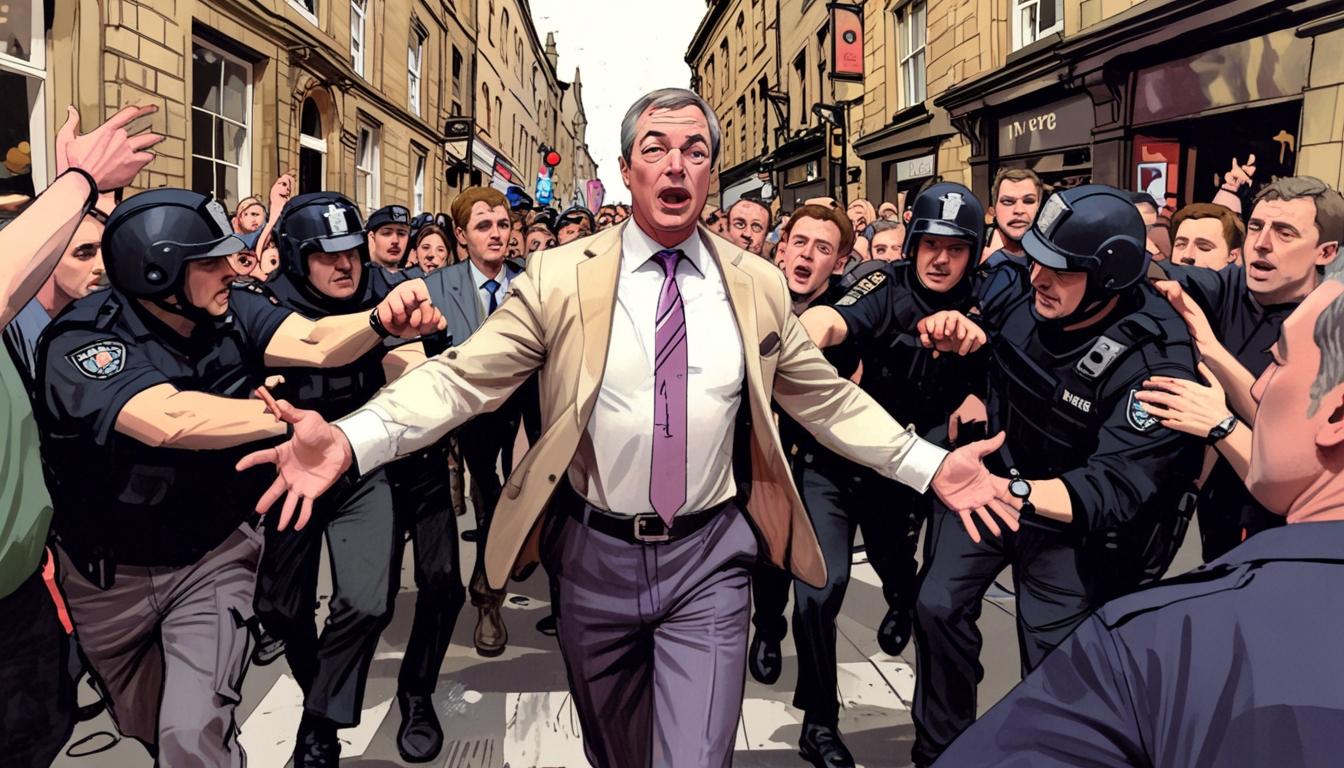On Thursday, May 16, 2013, a press conference hosted by then-UKIP leader Nigel Farage at the Canon’s Gait pub on Edinburgh’s Royal Mile spiraled into chaos as protests erupted outside. Demonstrators aimed to disrupt Mr Farage's appearance, leading the pub manager to halt the event amid overwhelming hostility. After this, Mr Farage faced further difficulties leaving, initially being turned away by two taxi drivers before police intervened to escort him back inside. Ultimately, he exited the venue with a police escort, departing in a riot van, an incident that became highly publicized.
Farage's visit was ostensibly to launch his party's campaign for the Holyrood parliamentary constituency of Aberdeen Donside, a significant moment given the political climate at the time. The protests arguably bolstered Mr Farage's narrative of hostility from the left, while simultaneously providing a rallying point for those campaigning for a Yes vote in the independence referendum.
Fast forward to today, local election results reveal a notable shift in Scotland's political atmosphere, particularly for Farage’s party, now aiming for a stronger identity in opposition politics. With his brand of populism hitting a nerve with segments of the electorate, Scottish leaders, aware of the rising threat posed by right-wing movements, convened a meeting to address what they perceive as the dangers of his growing influence. Reports from the meeting suggest it was filled with expressions of concern without substantive engagement, revealing a notable disconnect from voter sentiments.
While Farage may not appear to pose an immediate threat to the electoral prospects of First Minister John Swinney or his main rival, Anas Sarwar of the Scottish Labour Party, his presence serves as a vital counterpoint they cannot ignore. Both leaders leverage Farage as a boogeyman to caution against diverging views that resonate with dissatisfied voters. Despite past underestimations of Farage’s potential to impact Scottish politics, recent polls show a striking rise for his party, now positioned third in voting intentions for the upcoming Holyrood elections, trailing only the SNP and Labour.
In light of these developments, both the SNP and Labour are acutely aware of the growing appeal of Farage's messaging, particularly among younger voters disillusioned with traditional party lines. A survey by the John Smith Centre indicates that nearly two-thirds of individuals aged 16 to 29 are open to supporting independent candidates, underscoring a generational shift towards selective policy support instead of strict party loyalty.
Despite Mr Swinney's recent efforts to address concerns over what are considered extremist views, critics highlight a significant disconnect between his concerns and the genuine issues that resonate with voters. Sentiments surrounding immigration and economic anxieties have found a receptive audience among substantial segments of the Scottish electorate, including those who may find some of Farage's critiques appealing, even if they don’t wholly align with his politics.
The implications for Swinney and his party are stark. Polls suggest that the SNP could struggle to secure a majority in the forthcoming Holyrood election, potentially paving the way for a coalition of opposition forces—Labour, Conservatives, Liberal Democrats, and, crucially, Reform. Farage, while not contesting a seat himself, remains a potent figure shaping political discourse on contentious issues such as immigration and national identity.
As Reform gears up for a vigorous campaign, Mr Farage's historical experiences, including that tumultuous visit to Edinburgh, illustrate his ability to disrupt the entrenched political order. With the party building on its recent electoral successes and aiming to expand its reach in Scotland, it becomes increasingly evident that Farage’s strategy will continue to resonate, challenging established parties to rethink their approaches as they face an increasingly mobilized opposition.
Source: Noah Wire Services
